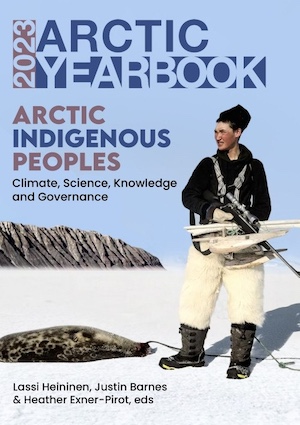Publication: « Working with and for Arctic communities on resilience enhancement »
Anna Karlsdóttir, Jean-Michel Huctin, Jeanne-Marie Gherardi, Tanguy Sandré, Jean-Paul Vanderlinden. Working with and for Arctic communities on resilience enhancement. Arctic Yearbook, 2023. (hal-04331193)

Concepts like knowledge co-production and narrative-centred approaches have become more prominent in place-based research in the Arctic. This article will share experiences from the Belmont Arctic II program’s project “Sense Making, Place attachment, and Extended networks, as sources of Resilience in the Arctic” (SeMPER-Arctic, 2019-2023). Rooting our work in the Arctic, with and for Arctic communities, we collected local stories of changes, shocks, upheavals, and their aftermaths in three communities: Uummannaq and Ittoqqortoormiit (Greenland) and Tiksi (Sakha Republic, Russia). However, this article is primarily about our research in Greenland. We investigated the interactions between the local narratives of resilience and two broad categories of external narratives: environmental science, and public policy and regional development. We developed a narrative-centered, locally rooted, place-based understanding of resilience. This calls for developing tools and strategies to increase community resilience in other communities and for sharing the lessons learned with regional planners and policymakers. We contribute to the framing of global environmental change through respectful, non-prejudiced enquiry, deciphering what it means to be a resilient community. Therefore, the results of this analysis are meant to be translated into options for actions, at the local, regional, national and circumpolar levels. Working towards maximizing impacts or enhancing resilience from research conducted for the benefit of communities involved in the research requires reflexivity and relationship building. How did this commitment emerge in our research practices? How do we meet ethical considerations? How do we contribute to decolonizing research whose imperative is towards culturally responsive research? This article will discuss experiences, questions and tensions emerging from circumpolar fieldwork-grounded research.



